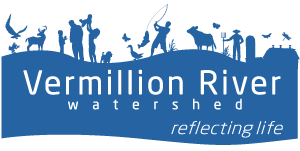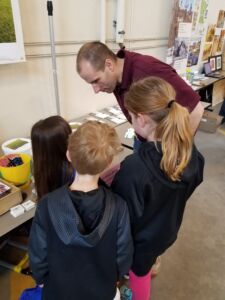- Categories
-
Tags
"State of the River" Report 2018 budget 25 by 25 Ag Water Quality Certification agriculture ais Alimagnet Angry Inch Angry Inch Brewery Apple Valley Apple Valley Senior Center aquatic invasive species astronomy bird watching board meeting buckthorn removal Burnsville Carpenter Nature Center Carpenter St. Croix Valley Nature Center citizen advisory group Clean Water Summit 2016 cleanup climate Coca-Cola Refreshments in Eagan Minn. Community Advisory Committee community event Conservation Minnesota County Fair CP Adams Park Dakota County Dakota County Parks Dakota County SWCD de-icing workshop Eagan Earth Day exhibits Farmington field day fishing Fix-It Clinic FMR Fortin Consulting Freshwater Society Friends of CNC Friends of the Mississippi River Governor Dayton Greenway groundwater Hastings Hastings Environmental Protectors Hastings Sand Coulee SNA information meeting invasive species removal Inver Grove Heights irrigation Joint Powers Board Kevin Smith Lake Marion Lakeville landscape for the river landscaping for clean water lawn and garden lawns maintenance MAISRC Master Water Stewards Mike Lynch Minnesota Department of Natural Resources Minnesota Institute of Astrophysics Minnesota Landscape Arboretum minnesota pollution control agency Minnesota StarWatch Mississippi River MPCA MWS native plants nitrates North Creek Parks Pine Bend SNA planting for clean planting for clean water pollinators prairie seed collection private wells projects public hearing public meeting rain barrel rainbarrel raingarden redevelopment rosemount salt sand coulee SNA Schaar's Bluff Gathering Center scientific and natural area Scott County scott swcd shoreline Smart Salting snow and ice best practices South Branch Vermillion River Spring Lake Park St. Croix Valley Bird Club star map starry stonewort starry trek stormwater retrofits SWCD TAG Technical Advisory Group Technical Advisory Group (TAG) tour town hall township officers Trevor Russell trout stream Trout Unlimited TU turfgrass maintenance Twin Cities Trout Unlimited UMN Extension University of Minnesota urban urban best management practices Vermillion Falls Park Vermillion River Vermillion River Aquatic Management Area Vermillion River Watershed Vermillion River Watershed Joint Powers Organization Vermillion Riverkeepers Vermillion Stewards volunteer VRWJPB VRWJPO VRWPC water conservation water quality Water treatment watershed management Watershed Plan watershed planning commission Watershed Planning Commission (WPC) We Are Water MN Whitetail Woods Regional Park winter road maintenance WPC
Lakeville Earth Day Celebration and Watershed Cleanup
Bring your family, your neighbors and friends! Fun for all ages!
Visit the various education stations and learn about what you can do to help make a difference in our city and for the Earth as a whole. The education stations include information on the following:
- Aquatic invasive species
- Prairies
- Pollinators
- Recycling
- Water quality
- Watersheds (that’s us)
- And more!
As you visit the stations, you will earn the chance to get Earth-friendly prizes and are sure to have lots of fun along the way.
Other activities include:
- Zoomobile
- Puppet shows
- Garden tool swap: If you’re in need of new to you gardening tools OR looking to get rid of excess (but still useful) gardening tools, there will be a garden tool swap at the entrance of the event where you can leave and take what you would like.
Watershed Cleanup info:
You and/or your group can start the pickup on April 20 at 1 p.m., or you can schedule a more convenient time, as long as it is before dark on April 30. Sign up here and be sure to mark on the map where you plan to clean up.
VRWJPO at Dakota County Fair
Visit with VRWJPO and environmental partners at the Dakota County Fair’s Natural Resources Building, August 5-11, 2024.
Irrigation Water Testing – Vermillion (city)
Dakota County, the Dakota County Soil and Water Conservation District, and the Minnesota Agricultural Water Resource Center will be offering farmers who irrigate their crops the opportunity to test their irrigation water for nitrogen. Testing is at no cost.
Participants will receive their results the same day. They will learn how to credit nitrate in their irrigation water for next year’s nutrient management plans. Participants will also walk through the Irrigation Management Assistant (IMA) Tool with a SWCD staff member. The tool helps with irrigation scheduling.
Private well owners can also have their drinking water tested for nitrate. They will receive their results and treatment recommendations, if applicable.
Sampling instructions for irrigators
Samples may be taken the day of analysis or ahead of time. Samples taken ahead of time must be frozen until attending a session to prevent samples from degrading.
Participants may bring in several frozen samples collected over a period of several days to get a more representative result.
Samples can be collected directly from irrigators or by installing a boiler drain to a pivot point or the well itself.
If sampling directly from irrigators:
- Allow irrigators to pump water for at least 15 minutes before sampling.
- Fill a clean 5-gallon bucket, or similar container. Mix before collecting the sample.
- Collect the test sample in a small Ziploc bag or a clean bottle or container. Only about 1 ounce of water is needed for testing.
Sampling instructions for private well owners
- Collect samples from your primary drinking water source after eight hours of nonuse, preferably first thing in the morning
- Collect your sample in a small Ziplock bag or clean bottle or container
- Do not run the water before sampling — collect the first draw in the container
- Only about 1 ounce of water is needed for testing, but collecting extra is advised.
Test results
Nitrogen results are confidential. Participants are not required to take any action after testing. They will receive their results and information on nitrogen crediting.
Irrigation Water Testing – Farmington
Dakota County, the Dakota County Soil and Water Conservation District and the Minnesota Agricultural Water Resource Center will be offering farmers who irrigate their crops the opportunity to test their irrigation water for nitrogen. Testing is at no cost.
Participants will receive their results the same day. They will learn how to credit nitrate in their irrigation water for next year’s nutrient management plans. Participants will also walk through the Irrigation Management Assistant (IMA) Tool with a SWCD staff member. The tool helps with irrigation scheduling.
Private well owners can also have their drinking water tested for nitrate. They will receive their results and treatment recommendations, if applicable.
Sampling instructions for irrigators
Samples may be taken the day of analysis or ahead of time. Samples taken ahead of time must be frozen until attending a session to prevent samples from degrading.
Participants may bring in several frozen samples collected over a period of several days to get a more representative result.
Samples can be collected directly from irrigators or by installing a boiler drain to a pivot point or the well itself.
If sampling directly from irrigators:
- Allow irrigators to pump water for at least 15 minutes before sampling.
- Fill a clean 5-gallon bucket, or similar container. Mix before collecting the sample.
- Collect the test sample in a small Ziploc bag or a clean bottle or container. Only about 1 ounce of water is needed for testing.
Sampling instructions for private well owners
- Collect samples from your primary drinking water source after eight hours of nonuse, preferably first thing in the morning
- Collect your sample in a small Ziplock bag or clean bottle or container
- Do not run the water before sampling — collect the first draw in the container
- Only about 1 ounce of water is needed for testing, but collecting extra is advised.
Test results
Nitrogen results are confidential. Participants are not required to take any action after testing. They will receive their results and information on nitrogen crediting.
Irrigation Water Testing – Marshan Township
Dakota County, the Dakota County Soil and Water Conservation District and the Minnesota Agricultural Water Resource Center will be offering farmers who irrigate their crops the opportunity to test their irrigation water for nitrogen. Testing is at no cost.
Participants will receive their results the same day. They will learn how to credit nitrate in their irrigation water for next year’s nutrient management plans. Participants will also walk through the Irrigation Management Assistant (IMA) Tool with a SWCD staff member. The tool helps with irrigation scheduling.
Private well owners can also have their drinking water tested for nitrate. They will receive their results and treatment recommendations, if applicable.
Sampling instructions for irrigators
Samples may be taken the day of analysis or ahead of time. Samples taken ahead of time must be frozen until attending a session to prevent samples from degrading.
Participants may bring in several frozen samples collected over a period of several days to get a more representative result.
Samples can be collected directly from irrigators or by installing a boiler drain to a pivot point or the well itself.
If sampling directly from irrigators:
- Allow irrigators to pump water for at least 15 minutes before sampling.
- Fill a clean 5-gallon bucket, or similar container. Mix before collecting the sample.
- Collect the test sample in a small Ziploc bag or a clean bottle or container. Only about 1 ounce of water is needed for testing.
Sampling instructions for private well owners
- Collect samples from your primary drinking water source after eight hours of nonuse, preferably first thing in the morning
- Collect your sample in a small Ziplock bag or clean bottle or container
- Do not run the water before sampling — collect the first draw in the container
- Only about 1 ounce of water is needed for testing, but collecting extra is advised.
Test results
Nitrogen results are confidential. Participants are not required to take any action after testing. They will receive their results and information on nitrogen crediting.
Irrigation Water Testing – Hampton (city)
Dakota County, the Dakota County Soil and Water Conservation District and the Minnesota Agricultural Water Resource Center will be offering farmers who irrigate their crops the opportunity to test their irrigation water for nitrogen. Testing is at no cost.
Participants will receive their results the same day. They will learn how to credit nitrate in their irrigation water for next year’s nutrient management plans. Participants will also walk through the Irrigation Management Assistant (IMA) Tool with a SWCD staff member. The tool helps with irrigation scheduling.
Private well owners can also have their drinking water tested for nitrate. They will receive their results and treatment recommendations, if applicable.
Sampling instructions for irrigators
Samples may be taken the day of analysis or ahead of time. Samples taken ahead of time must be frozen until attending a session to prevent samples from degrading.
Participants may bring in several frozen samples collected over a period of several days to get a more representative result.
Samples can be collected directly from irrigators or by installing a boiler drain to a pivot point or the well itself.
If sampling directly from irrigators:
- Allow irrigators to pump water for at least 15 minutes before sampling.
- Fill a clean 5-gallon bucket, or similar container. Mix before collecting the sample.
- Collect the test sample in a small Ziploc bag or a clean bottle or container. Only about 1 ounce of water is needed for testing.
Sampling instructions for private well owners
- Collect samples from your primary drinking water source after eight hours of nonuse, preferably first thing in the morning
- Collect your sample in a small Ziplock bag or clean bottle or container
- Do not run the water before sampling — collect the first draw in the container
- Only about 1 ounce of water is needed for testing, but collecting extra is advised.
Test results
Nitrogen results are confidential. Participants are not required to take any action after testing. They will receive their results and information on nitrogen crediting.

Volunteer for Winter Salt Week – Jan. 27-31
Join Dakota County and local watershed organizations in sampling for chloride in water. Stop by a Dakota County Library branch to pick up sampling materials and learn how you can use less salt and reduce chloride pollution while staying safe this winter.
Chloride levels in Minnesota’s lakes, rivers and groundwater are increasing over time, largely attributed to overuse of de-icing salt. One teaspoon of salt pollutes five gallons of water, with no feasible way to remove it. Salt damages property and the environment, harms aquatic species and impacts drinking water quality.
With friends or family, collect a water sample from a local lake, stream, or wetland and test it for chloride using the Izaak Walton League of America’s Salt Watch Kit. Choose any Dakota County library and sign up to collect testing supplies at that location Jan. 27 – 31.
Your testing kit will include a list and map of streams, ponds or wetlands near the libraries where you can collect a water sample from. Report the data/share the results to the Clean Water Hub. All materials needed and instructions will be provided by the county.
Participating library branches include:
- Burnhaven Library (Burnsville)
- Farmington Library (Farmington)
- Galaxie Library (Apple Valley)
- Heritage Library (Lakeville)
- Inver Glen Library (Inver Grove Heights)
- Kaposia Library (South St. Paul)
- Pleasant Hill Library (Hastings)
- Robert Trail Library (Rosemount)
- Wentworth Library (West St. Paul)
- Wescott Library (Eagan)
While at your favorite Dakota County library:
- Browse book displays on winter topics. Pick up a bookmark with the book lists.
- Have fun on a scavenger hunt.
- Learn how to be a Smart Salter and pick up a cup to use the right amount of salt if it is needed.
- Know what watershed you live in and how you can help protect local water resources.
- Kids activities include Salty Dawg activity book, temporary tattoos, origami and buttons!
- Learn from Salty Dawg and take the pledge to be a Smart Salter. Find more information about the pledge at all library branches and on the Dakota County website
More information about Winter Salt Week
Winter Salt Week is January 27-31, 2025. This event is a collaboration of governmental and non-governmental organizations across the United States and Canada. Winter salt use damages infrastructure and threatens the health of lakes, streams and drinking water. The goal of the event is to engage with Minnesotans on chloride pollution in your community and continue ‘working to keep freshwater fresh.’
Visit www.wintersaltweek.org for more information and to learn about the daily webinars including Minnesota speakers providing public works perspectives and presenting on the policy solutions panel.
Program Contact
Lindsey Albright, Monitoring and Outreach Coordinator, Dakota County Soil and Water Conservation District – lindsey.albright@co.dakota.mn.us
Winter safety tips:
- Wait until roads are safe to travel before driving to a sample location.
- Wear crampons or shoes with good traction.
- Approach water where the ground is flat and not slippery.
- NEVER walk on the ice over the water.
- Sample where ice is thin enough to easily break through and reachable from a stable spot on the bank.
- When in doubt, come back when conditions improve.
General safety tips:
- Wear fluorescent clothing when sampling during hunting season or along a roadway.
- Dress appropriately for weather conditions.
- Be sure to sample on public property or secure landowner permission first.
- Park carefully when sampling near a roadway.
- Go with a partner or make sure someone knows where you are going and when you are expected to return.



